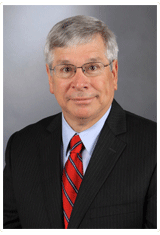It is no secret that Missouri’s foundation formula is underfunded by $422 million. This week, legislation that would create a greater detriment for the state’s 520 school districts, currently funded by the foundation formula, was Truly Agreed To and Finally passed. It will now be placed on the governor’s desk.
House Bill 42 received hours of fervent debate in the Senate Chamber Tuesday (5-5). This legislation originated to address the issue of students in unaccredited school districts and allow every student the opportunity to receive a quality education. However, the bill was amended in the Senate to include charter and virtual school expansion in St. Louis County, St. Louis City and Jackson County. The cost of this expansion on our students and local school districts is immense, which is why I voted AGAINST House Bill 42.
Currently, these districts are allowed to have charter or virtual schools if their school districts allow them. Under this measure, they would no longer need school district approval to expand charter or virtual schools, essentially allowing state funding to be diluted throughout the state. This would impact smaller counties the most, such as those found in the 27th District and Southeast Missouri.
There are 68,000 students in private schools throughout St. Louis and Kansas City. My biggest fear is that this bill will pull thousands of children, currently attending private schools, into charter schools and public funding. This will result in decreased funding throughout all school districts from the formula. This bill originated to provide quality education for all students. I believe the final version will result in the hindering of education for all Missouri children.
Virtual schools would also obtain public funding with the passage of HB 42. Many of Missouri’s children who are being homeschooled use virtual schools. By adding virtual schools to state funding, parents paying for these programs while home schooling would have no incentive to continue paying for these programs when they are provided by the state.
What was once a bill designed to help students gain access to a proper education in an unaccredited school district has now become a driving force to push charter and virtual schools into the foundation formula, placing the burden on all school districts within Missouri. The FY 2016 budget contains a record-breaking increase of $84 million in funding for K-12 education, bringing us closer to funding the formula. However, if HB 42 is signed by the governor, any increase in funds schools in the 27th district would have received would be taken in order to fund new charter and virtual schools.
Missouri’s foundation formula cannot accommodate the increased amount of students who would become funded resulting from this bill. We cannot expect our educators to provide adequate education to our children when we are losing our funding to the big cities. I was truly disappointed to see this piece of legislation move forward in the lawmaking process. It is my hopes the governor will recognize the amount of damage this bill will produce for rural school districts and veto this bill.
Another bill that would affect Missouri’s educators currently in the Upper Chamber is House Bill 478, which addresses teacher retirement. Under this measure, school teacher and employee retirement allowances will increase .05 percent of the member’s final average salary for each year of service if serving more than 31 years. Originally enacted in 2001, the 2.55 formula factor expired July 1, 2014. If enacted this would encourage good experienced educators to stay in the classroom.
Educators in Missouri are eligible for retirement after 30 years of service. Teachers’ pay 14.5 percent weekly into the retirement system, and currently, upon retirement, they receive 75 percent of their salary, as well as additional funds for cost of living. If teachers work more than 30 years, their retirement is calculated by the number of years served times a 2.5 percent multiplier.
Under HB 478, any educator who works over 30 years will receive a 2.55 percent multiplier. However, in return, for each additional year worked the teacher would forfeit receiving their retirement and their cost of living, which compounds every year. If enacted the new 2.55 formula factor would save $7.7 million annually for 30 years.
Nothing is more important than the education of our children and those responsible for that education. I will continue to work diligently in this final week of session and fight for a stronger education structure.
I urge you to contact me with any questions or concerns you have about state government so that I can better represent you during the 2015 Legislative Session.
Contact Me
I always appreciate hearing your comments, opinions, and concerns. Please feel free to contact me in Jefferson City at (573) 751-2459. You may write me at Wayne Wallingford, Missouri Senate, State Capitol, Jefferson City, MO 65101, or email at wayne.wallingford@senate.mo.gov or www.senate.mo.gov/wallingford.
If you would like to stop receiving these weekly updates, please send an email here. |



